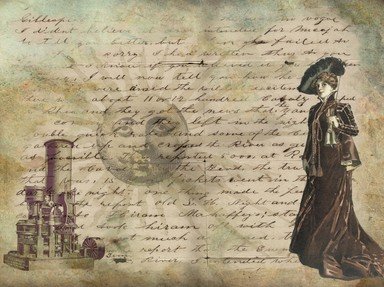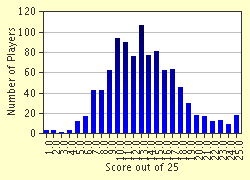Quiz Answer Key and Fun Facts
1. What 1st century BC poet and author of "The Aeneid" serves as a guide in Dante's "Inferno"?
2. What 2nd century AD theologian wrote a work entitled "Against the Heresies," which was aimed at Gnosticism?
3. What Hindu epic and literary masterpiece was completed by the 3rd century AD?
4. What canon of religious literature was finally, firmly fixed at the end of the 4th century AD?
5. What 5th century BC Greek dramatist authored "Alcestis" and "Andromache"?
6. What language has written literature first dating from about the 6th century AD?
7. What 7th century BC Greek poet may have been the first to write choral lyrics in the strophic form?
8. What 8th century AD monk preserved for us "Caedmon's Hymn," which may be the oldest poem written in English?
9. What 9th century AD English King translated many works of literature into Old English and West Saxon, including "St Augustine's Soliloquies"?
10. What Old English epic, preserved in a late 10th century AD manuscript, takes place largely in a mead hall called Heorot?
11. What Jewish king, who reigned during the 11th century BC, is credited with writing many of the Psalms?
12. This 12th century AD Anglo-Norman work, written for Eleanor of Aquitaine, was attributed to Benoît de Saint Maure.
13. The following lines are here translated into English by Coleman Barks: "And my heart, I'd say it was more / like a donkey sunk in a mudhole, / struggling and miring deeper. / But listen to me: for one moment, / quit being sad. Hear blessings / dropping their blossoms / around you. / God." What 13th century AD mystical poet originally penned these lines?
14. What 14th century AD morality poem contains the allegorical characters Gluttony, Envy, Meekness, and Conscience?
15. What 15th century AD author's work, which tells of the war between Arthur and Lancelot, begins, "In May when every lusty heart floursheth...."?
16. What 16th century AD playwright introduced blank verse to the stage with "Tamburlaine"?
17. What early 17th century AD poet and playwright included in one of his last plays these lines: "Now my charms are all o'erthrown / And what strength I have's mine own / Which is most faint..."?
18. What 18th century AD poet, in his vindication of God, writes, "Cease then, nor ORDER Imperfection name: / Our proper bliss depends on what we blame"?
19. What 19th century AD English writer wrote a novel that Virginia Woolf described as "one of the few written for grownups"?
20. What 20th century AD American writer has penned both an apology for Judaism and a famous tale involving a Naval court martial?
21. Even in the 21st century AD, the historical novel has wide appeal. Who has written a series of novels set during the Napoleonic wars, featuring a rough but honorable soldier by the name of Richard Sharpe?
22. Some scholars date the building of the Tower of Babel in the 22nd century BC. In what work of religious literature do we first learn of the Tower of Babel?
23. In the 23rd century BC, Sargon of Akkad conquered Mesopotamia, and became the subject of legends. It is from a Sumerian legend that we learn how Sargon established himself as the cupbearer of the king of Kish in Sumer. What early form of writing did the Sumerians invent?
24. I don't have anything for the 24th century, either BC or AD. But we haven't covered the first century AD yet. What historian wrote "The Jewish War" during that time?
25. We haven't covered the 8th century BC, either. So tell me, what reputedly blind bard's epics were probably recorded during this time?
Source: Author
skylarb
This quiz was reviewed by FunTrivia editor
gtho4 before going online.
Any errors found in FunTrivia content are routinely corrected through our feedback system.


